Why is Soludo going after Obi?
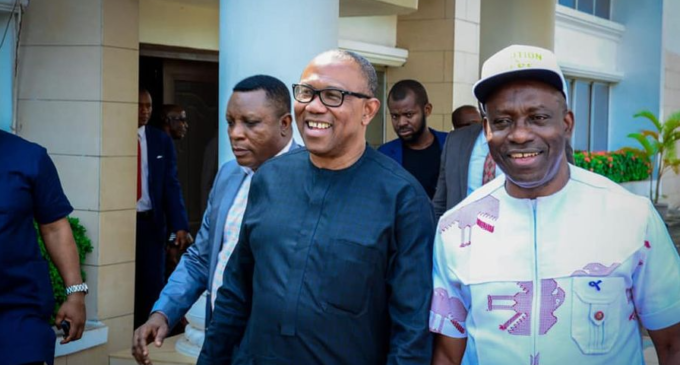
This is the political season and we should therefore expect to see all kinds of darts – mostly poisoned – flying in different directions, targeted at political opponents. In politics, friends can become foes overnight and the media is always willing and happy to feast on the harvest of events as they unfold.
To become the president of a country is usually a high-stake event and long, drawn-out process: there are those that will support your ambition and others that are opposed to it. This is normal, especially in a multi-party democracy during every election cycle.
Peter Obi is the presidential candidate of the Labour Party (LP) and he successfully built a cult followership popularly known as “Obidients”; you will find them everywhere – both at home and abroad. Obidients don’t like it when you criticise Peter Obi because, as far as they are concerned, their candidate is the “messiah” we have all been waiting for. But not everyone agrees.
Personally, I do not have anything against Obidients because we are in a democracy and everyone has the right to make a choice. For crying out loud, Nigerians should be allowed to make their choices in a free, fair and credible election when the time comes.
The only problem I have with the group is that they take social media activism – which includes cyber bullying – too far. Once you express a view that is contrary to Peter Obi’s worldview, they will descend upon you like bees.
A lot of commentators have expressed this concern and it got so bad that the LP presidential flag bearer had to caution them recently to refrain from attacking those who hold different views.
But if Obi’s presidential ambition has gained so much momentum and traction, with the support of Obidients, especially the youth, it is a new feeling. Nigerians are looking for hope; they want to hold on to hope of any kind after the serial disappointments by our leaders over the years. In their own reckoning, both APC and PDP – the two dominant parties that have been managing the affairs of the country since 1999 – have failed them.
Most Nigerians – young and old – do not trust politicians and they are in search of platforms similar to the #EndSARS protests of 2020 to express their frustrations and campaign for a better Nigeria. Peter Obi, after he defected from PDP to Labour party, provided the platform and became the rallying symbol for hope; it does not matter to them whether Obi wins the presidential election or not. Some Obidients went as far as saying that they were ready to “waste” their votes.
You can actually feel the enthusiasm, excitement and spontaneous reactions of Obidients to key national issues in private and open conversations as they clamour for “change” for a better Nigeria. They are in a hurry to effect the “changes” they want with Peter Obi on the driver’s seat.
If wishes were horses, even beggars will ride, as the popular saying goes. But politics is a different kind of game where you need to build alliances and broad coalitions based on mutual interests. Politics is also a game of numbers that is tied to where you have the biggest voting blocks. Lobbying and horse trading are also part of the game.
Some Obidients have already concluded that the LP presidential candidate will win the election next year without providing the evidence or pathway to the presidency. Anyway, it is part of the game; politicians and their supporters who follow them blindly don’t ever believe they can lose but everybody cannot win. Now, if Peter Obi does not win, will the Obidients accept the result? Would there be violence, mayhem and anarchy?
These questions are pertinent because, to win the presidential election, the candidate must have the highest number of votes in addition to polling a minimum of 25 percent of the total votes cast in at least 24 states out of the 36 states. This is usually not an easy feat if you do not have a broad-based coalition across regions and tribes.
The news from Awka is not exactly what Obidients want to hear at this time, with a few months to the presidential election holding on February 25, 2023. I cannot claim to know Peter Obi better than Charles Soludo, the governor of Anambra state, and vice versa. In fact, I barely know them because our paths have never crossed.
In a widely circulated article written by Soludo in elegant prose, it is evident that the two compatriots are no longer on the same page. Were they ever really together? There have been all kinds of reactions to the article which Soludo titled, “History beckons and I will not be silent (Part 1)”. It means Part 2 will come later and I suspect it will be based on reactions to Part 1 of his diatribe.
Although Soludo referred to Obi as his brother more than once, the Anambra state governor was unsparing in his attack of the presidential candidate of the Labour Party, prompting some people to ask: what’s Soludo’s problem with Obi?
Both Soludo and Obi are from Anambra state and you would expect mutual support for their respective political ambitions, but it does not always work like that. In politics, there are no permanent friends or enemies; the only stock available for negotiation and sale is permanent interests.
When politicians behave like prostitutes and switch camps without thinking twice or attack each other openly, don’t be fooled; it is always a matter of individual or group interests – for political survival and relevance.
As Rev Father Matthew Kukah, the Catholic Bishop of Sokoto Diocese explained during a Channels TV interview, “Politicians are friends struggling for the national cake and they should not be taken too seriously.” They do not care whether the rest of us exist.
When they share our money without breaking any sweat and stockpile the loot outside the banking system, tribe, region and religion does not matter. At such moments, they do not quarrel. With friends like politicians, do we really need enemies?
So why is Soludo going after Peter Obi when he is also an Ndigbo like him or is it all politics? Soludo may have unwittingly created the impression that he is envious of Peter Obi by raising the red flag but “envy” is not the right word in this context. But why instigate an unhealthy rivalry?
From the essay, the Anambra governor is clearly on a mission to “set the records straight”. He is angry with the Obidients and what he calls “social media mob” that are unable to tolerate dissenting views as Soludo described them. In a Channels TV interview, Soludo had said the “investments” Obi made while he was governor of Anambra state were “worth next to nothing.”
In a sense, the comment by Soludo was a de-marketing effort which Obidients responded to in kind. But Soludo wants prove to them that no one can silence or bully him into submission because he is not a coward.
Soludo may just have been referencing the famous quote from Julius Caesar: cowards die many times before their deaths. This perhaps explains why Soludo believes that Peter Obi’s “social media mob” and other Obidients should be given a dose of their own medicine. What Soludo is saying in plain language is that he fearless and ready to take on any adversary.
Soludo declared that Obi, in spite of his popularity, cannot win the presidential election because from the strategy standpoint, according to Soludo’s thesis, Obi is a “lone ranger” and “local champion”. For these reasons, Obi cannot go far in the electoral contest with the presidential candidates of APC and PDP.
Soludo is also worried that Obi’s presidential ambition is described as an “Igbo Project”. His view is that such characterisation is a weak proposition for Ndigbo. Soludo’s solution is that Ndigbo must work out a coherent strategy for a meaningful engagement in the future with other regions for the overall benefit of Ndigbo.
This overarching strategy for Ndigbo to win in national politics, according to Soludo, must be broad in scope in terms of ideas that will allow them work with other regions and inclusive enough to accommodate dissenting views that should not necessarily provoke anti-Igbo sentiments in any part of Igboland. Soludo’s point is that the Ndigbo should be able to speak their minds freely at any time and disagree without being disagreeable.
There’s also the matter of Peter Obi dumping APGA (which Soludo was opposed to) for PDP and then moving on to Labour Party to pursue his presidential ambition. Meanwhile, Obi had asked Soludo in 2016 to defect to PDP so that he could contest the 2017 gubernatorial election against the incumbent, Willie Obiano, but he refused.
On his part, Soludo asked Obi on March 8, 2022 to return to APGA and contest as its presidential candidate but Obi stayed back in PDP before he resigned and joined the Labour Party. Obi’s thinking was that APGA was a regional and fringe party without national presence, prominence and outreach initiatives for his presidential ambition.
I think Obi was mistaken because he ended up in Labour Party. According to Soludo, Obi once told the Ndigbo: “APGA is the vehicle through which Igbos would organise to engage the rest of Nigeria politically.” By the way, APGA is Nigeria’s third largest political party.
By building APGA as a regional force, the party would have had the same standing – and perhaps characteristics – like CPC in the North and ACN in the South West. ACN and CPC, together with some legacy parties, formed APC that eventually won the 2015 and 2019 presidential elections and controlling seats in the national assembly. APC currently has 22 state governors, PDP 13 and APGA 1.
Soludo is obviously not happy Obi abandoned APGA to become the presidential flag bearer of Labour Party which he described as “structure-less”. He would have preferred that Obi remained in APGA and become “resilient” as Asiwaju Bola Ahmed Tinubu, the presidential candidate of APC, did with AD when he defied the “political wind of the time” and remained the “only man standing”.
If the likes of Obi who was a former governor of Anambra state for two terms do not remain in APGA, how will the party grow organically and evolve to become a key player in mainstream national politics? Aside the antics of the “social media mob”, this is Soludo’s main concern and he feels strongly that 2023 would be another wasted opportunity for Ndigbo.
Braimah is a public relations strategist and publisher/editor-in-chief of Naija Times (https://ntm.ng)
Views expressed by contributors are strictly personal and not of TheCable.


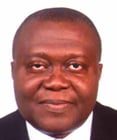




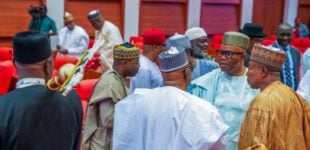

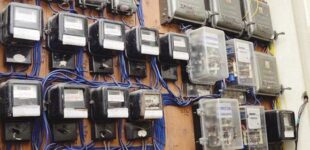
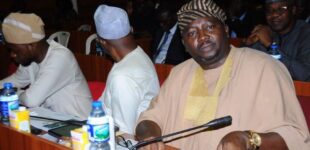

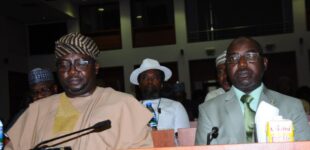

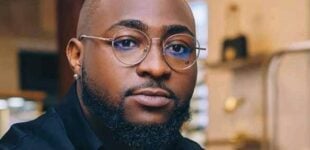
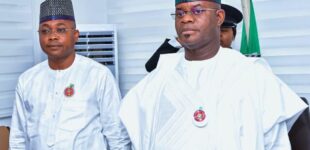

There are no comments at the moment, do you want to add one?
Write a comment